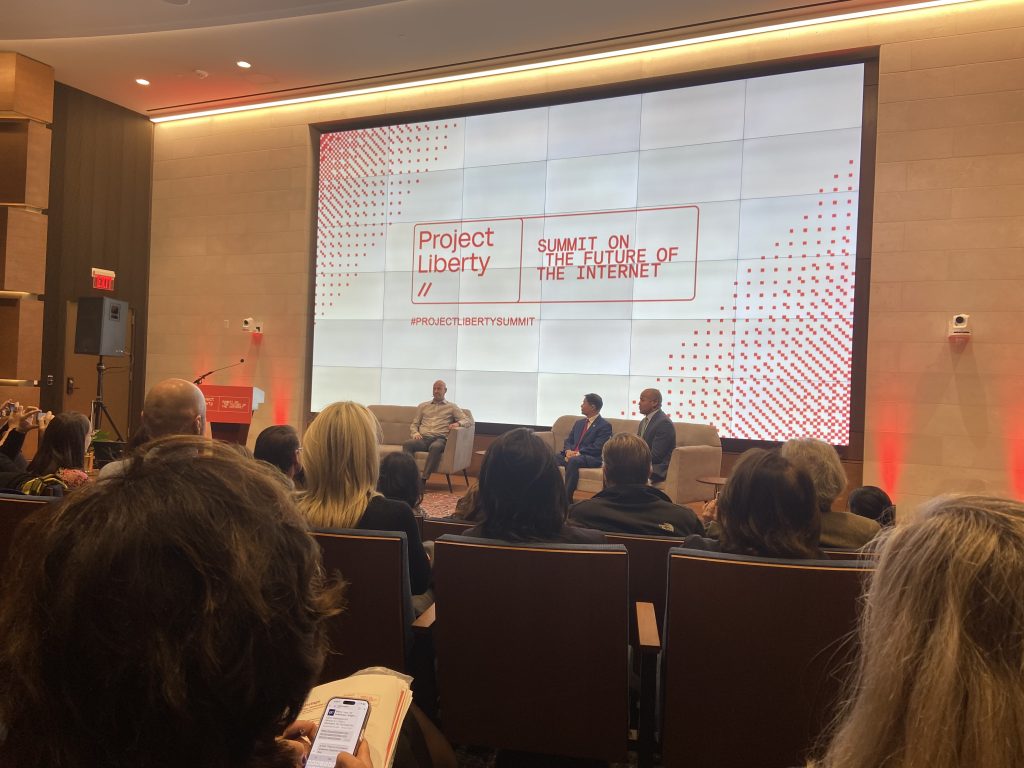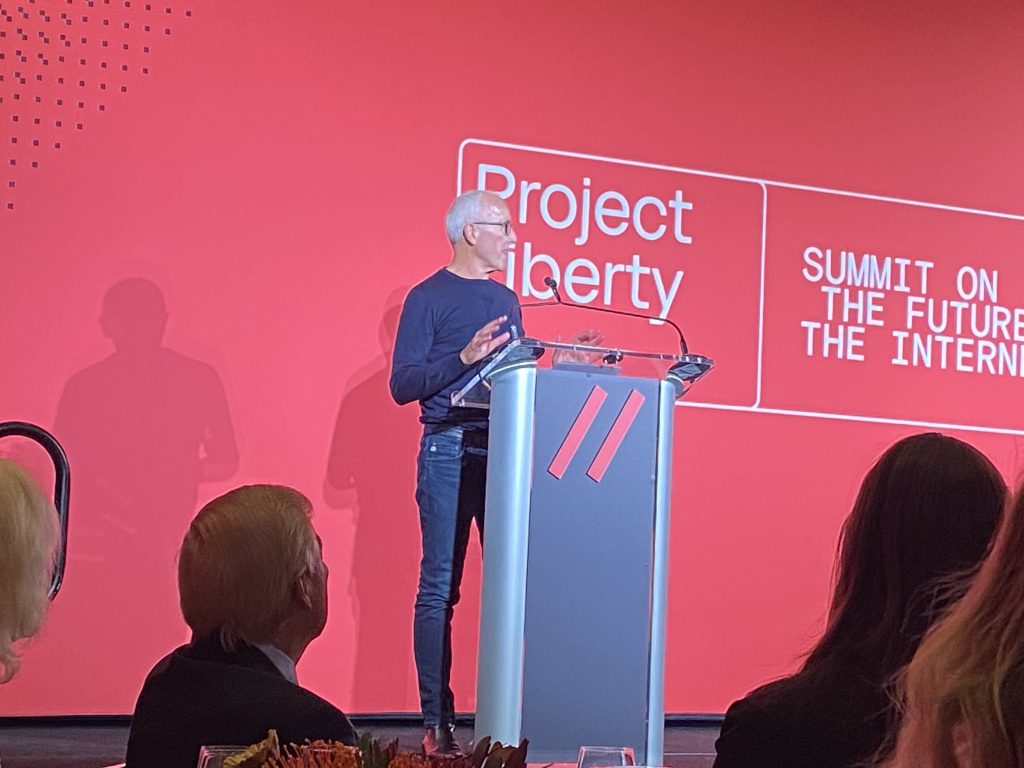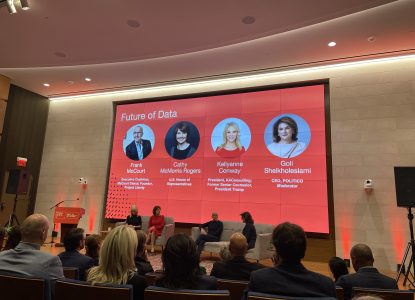By Marianna Richardson
On November 21-22, 2024, coinciding with the Internet’s 55th anniversary, Project Liberty organized a groundbreaking summit that brought together an unprecedented mix of tech innovators, policy makers, and religious leaders. The summit marked a historic shift in how we approach the future of the internet, notably by including interfaith perspectives in discussions about crafting a better web. This gathering represented the first time religious voices were deliberately brought into the early stages of reimagining our digital future, rather than being consulted after the fact. The agenda of the summit is far-reaching, seeking national and global efforts to align legal, technical, and economic codes for a new digital era. Top leaders in policy, government, finance, and civil society, as well as technology creators of the Internet, Web 3, Tik Tok, MySpace, We are 8, and Frequency (just to name a few) attended the event.
– – –
Overview of Project Liberty
Project Liberty is building solutions that help people take back control of their digital lives by reclaiming a voice, choice, and stake in a better internet, building a healthier tech ecosystem. Project Liberty has defined these concepts with the following definitions:
- Voice is a single sign on across apps with digital social identity and control of social connections.
- Choice is to manage data, permissions, and privacy with user-specific controls.
- Stake is the support of your favorite apps by giving them more capacity to operate by taking advantage of the decentralization of the web.

Frank McCourt, the founder of Project Liberty, has a vision that this new social media app would allow people to own themselves again, by regaining ownership of their identity. Rather than a centralized and autocratic technology, the focus of Project Liberty is to bring a decentralized and democratic web application that would allow people to have individual control of their social internet, thus, creating digital freedom and a pluralistic environment. Navigating your experiences on the web will be based on your own free will. Individuals will be able to access the world’s information based on individual choice, rather than digital choices made for them. This third generation of the web will be an open source for creators and individuals.
Interfaith Voices Joining the Discussion
Even though Project Liberty was established five years ago, this was the first summit that specifically had an interfaith component. Tomicah Tilleman, President of Project Liberty, has opened the better web discussion to interfaith voices, bringing important insight into how the web should treat faith voices. Rather than asking for ideas on how to fix social media and artificial intelligence after it has become a part of society, interfaith voices are now being asked during the reinventing and creation of the better web and social media, which included G20 Interfaith Forum.

Neylan McBain, the new interfaith initiative director for Project Liberty, brought together a group of individuals to the summit. She commented:
“Project Liberty gave me the mandate to gather an interfaith digital consortium, a group of people who are dedicated to healthy faith communities and healthy digital communities. The things we create in the online and offline worlds are reflections of our identities, and this includes our spiritual identities. Bringing in our faith systems and exploring how they inform our creative processes and motivation is an overdue and welcomed conversation with the tech community.”
Rev. Johnnie Moore, president of the Congress of Christian Leaders and JDA Worldwide, was a participant in the interfaith initiative. He commented:
“This conference was a critical convening at a historic moment and religious leaders were invited into the heart of it all. For too long, faith leaders have at best looked from the outside into the conversations the tech sector have had about the future they are shaping for us all. No longer. The VIPs at the Summit on the Future of the Internet were faith leaders who spend their lives not only asking what CAN be done but also what SHOULD be done. Yet, no one was an advocate of slowing down any innovation. The consensus was clear: let’s move faster than ever but let’s have all the ideas at the table.”
Rachel Miner, president and CEO of Bellwether, also attended and said:
“Project Liberty is leading a critical discussion that has implications far beyond the future of the Internet. The world is increasingly religious even if secular mindsets dominate innovation in the United States. Therefore, adopting a ‘faith’ perspective which of course includes the non-religious, is crucial for policies that promote internet and data safety in the US and around the world. We forget in our prosperous context that the conversations we have here create visceral consequences for people beyond our borders where the safety net democracy does not always extend.”
Matt Wienberg, Research director of the Baha’i International Community, discussed the importance of the creation of this new digital platform:
“Moving towards more conscious and purposeful patterns of technological innovation that align with the values and aspirations of individuals and communities depends on both practical and spiritual awareness – of a conception of what is to flourish as a human in the fullest sense.”
Questions brought up at the Summit included how we bridge between value systems and technology. As the new digital age becomes a reality, creators need to focus on people of faith, since they constitute 85% of the world’s population. Project Liberty looks to the future, seeing it optimistically with our tech stack becoming more aligned with our value stack.
– – –
Marianna Richardson is the Director of Communications for the G20 Interfaith Forum. She is also an adjunct professor at the Marriott School of Business at Brigham Young University.


